I arrive there by pure chance, only later to learn this place’s former name: Paradise Beach. It is late afternoon. The fishing boat comes back from the sea. A crowd of barefoot people race to it to unload boxes of fish. I observe with amazement. I never dreamt seeing a sight like this. I think I've stepped back in time into one of Joseph Conrad's books. These people are beautiful, the boats are beautiful, the sunset is unreal.
With curiosity, I follow the stream of people and discover the distance between paradise and hell: fifty meters. The fish boxes go direct to the fish processing factory, a Chinese investment, the main cause of overfishing, pollution and decline of tourism. The smell is unbearable. The smoke can be seen and felt all over the village. The factory is surrounded by shags of local fish processing, with rotting fish decay, smoke from burnt plastic garbage, wandering stray cattle, goats and dogs.
I go back to the beach to sit with the fishermen. I ask about the life and business.
Fishermen tell me not many boats belong to the Gambians. Big boats are Chinese. Smaller boats belong to Senegalese. Business was good and many boats were here. Now the fish declined and most boats left - for Europe. One way.
And how about tourism? As soon as the wind changes direction, I know the answer. Because of the smell from the factory, no one uses the phrase “Paradise beach” any more.
You can love or hate Gambia, or both. But you cannot stay indifferent.

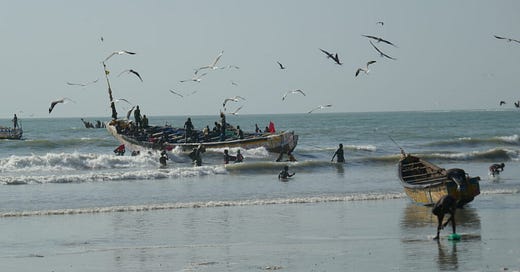




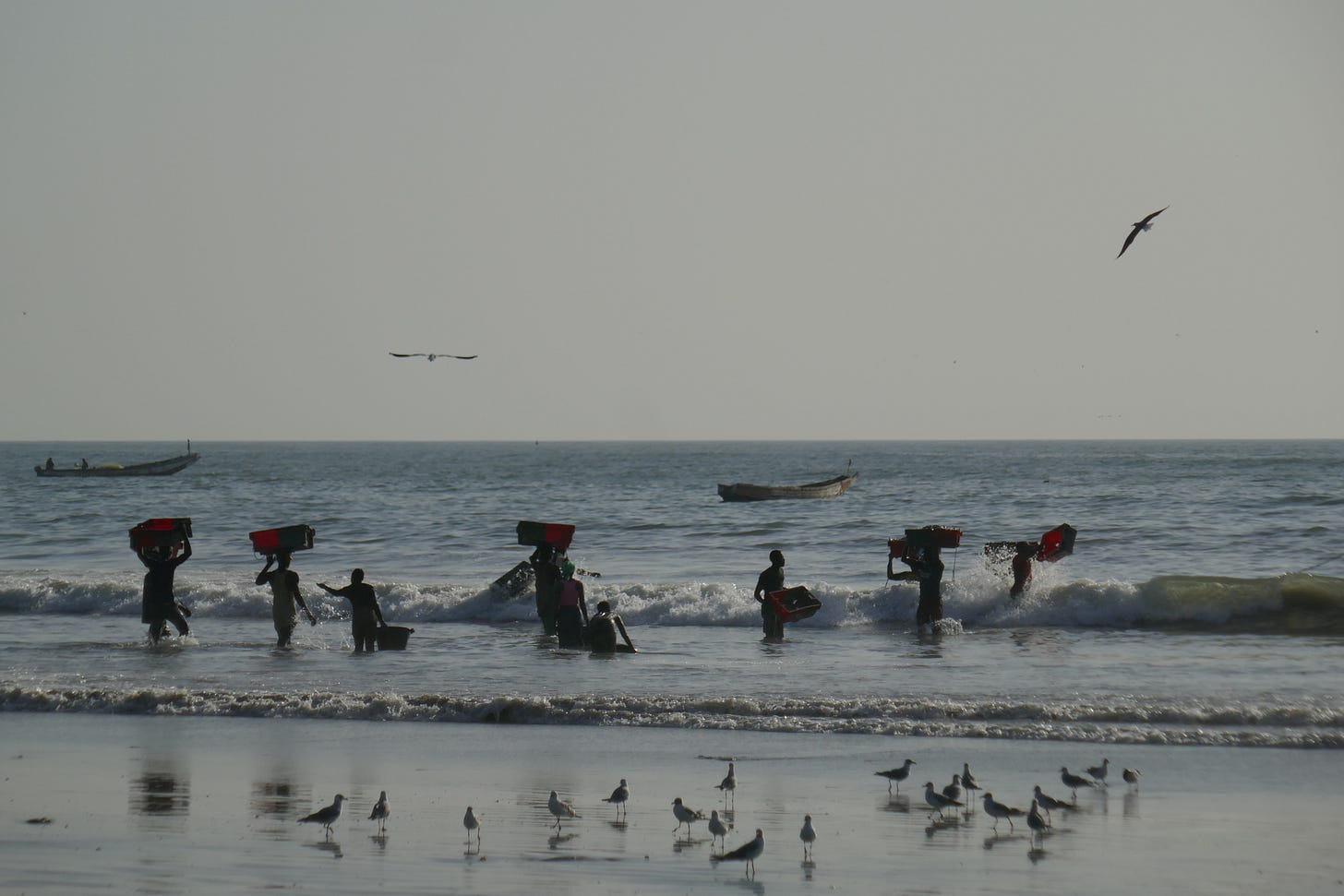
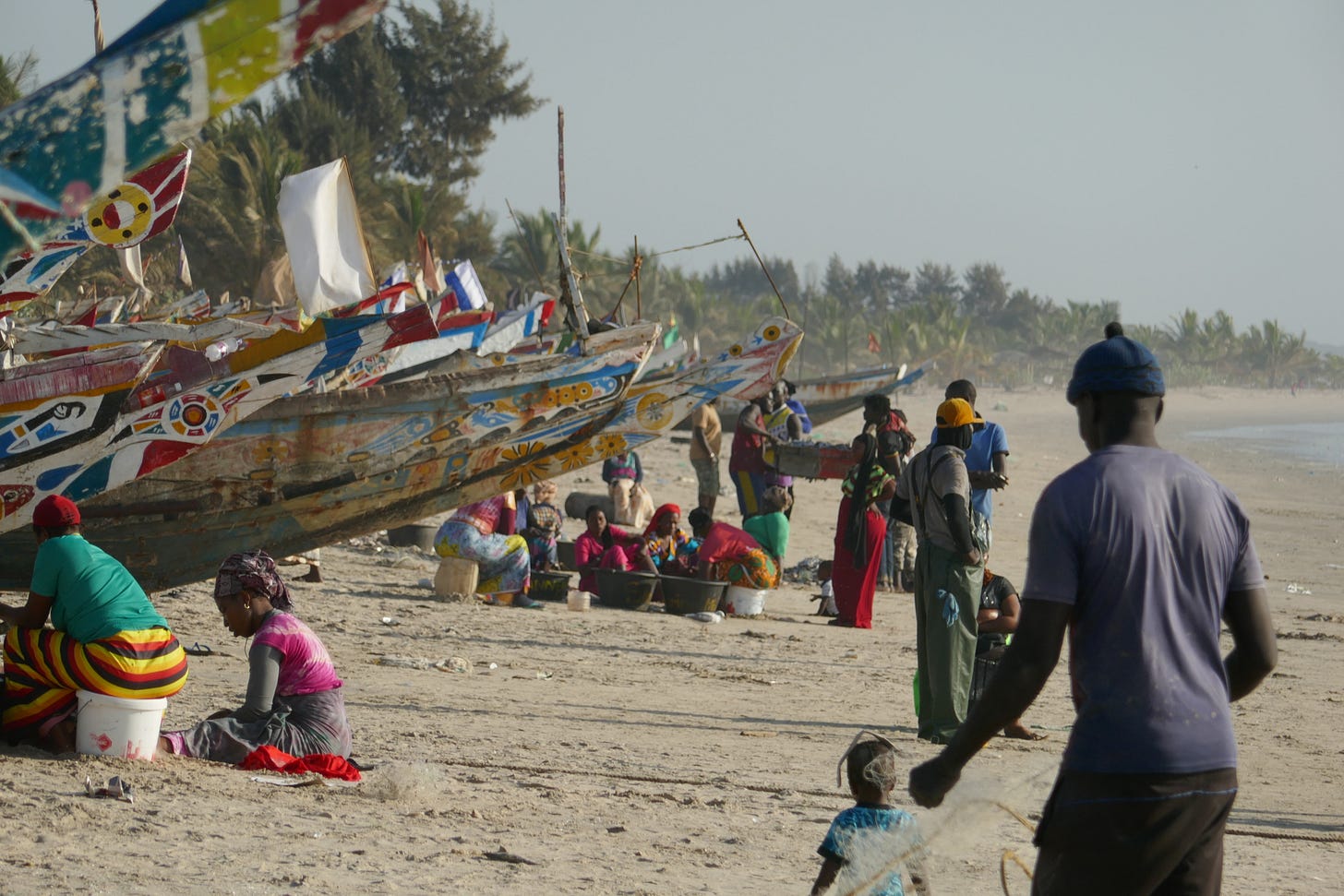
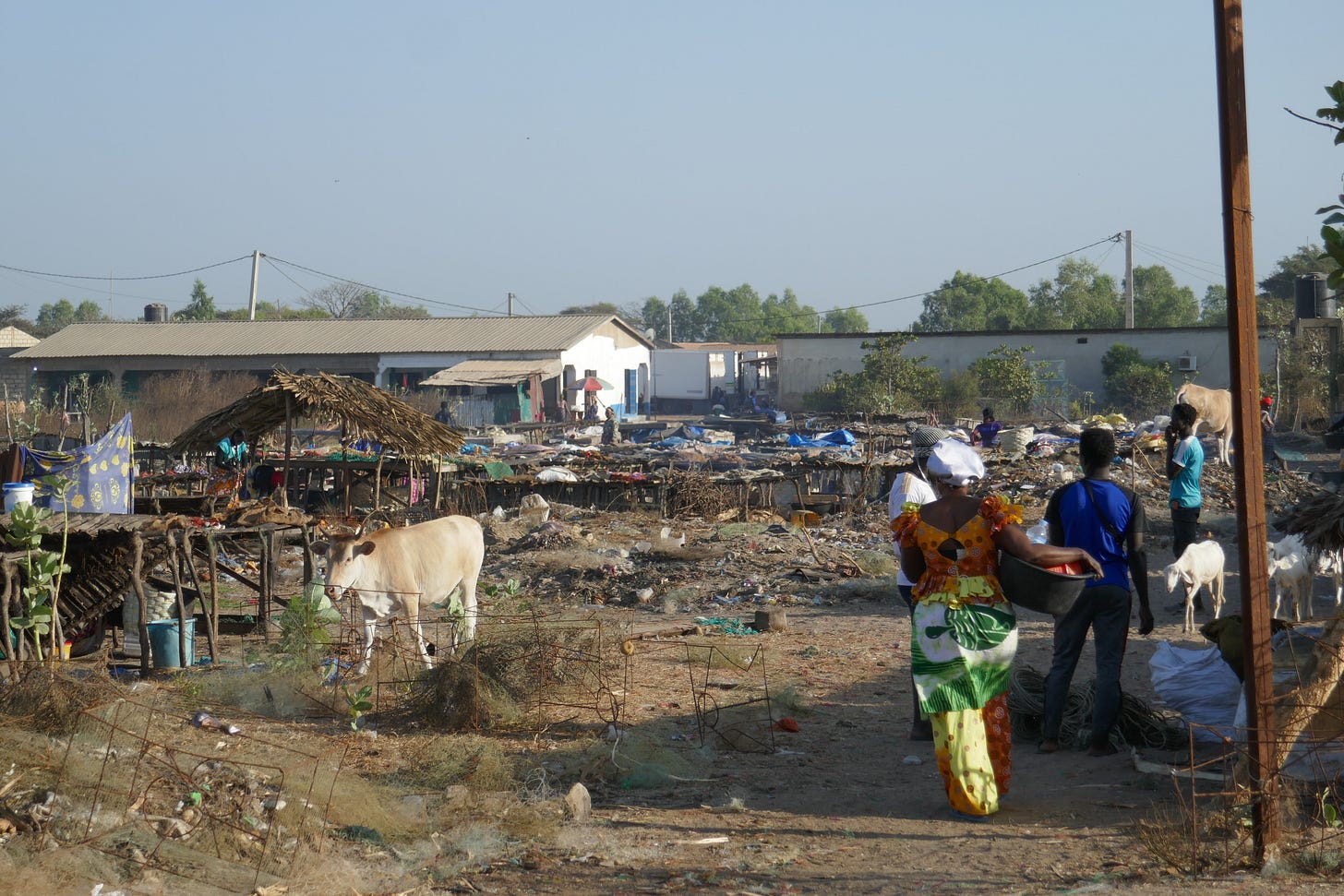
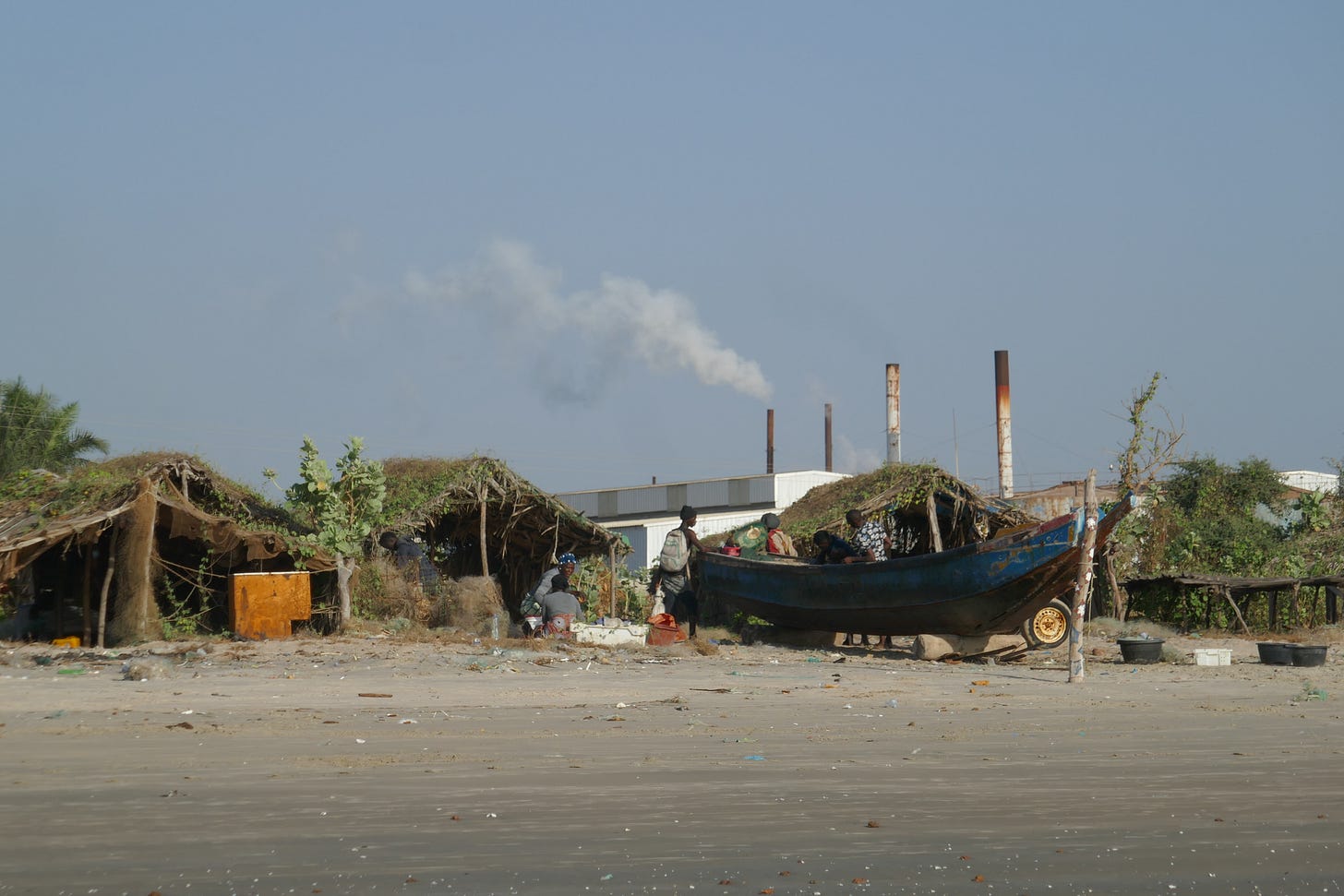
I would love to see this subset someday...